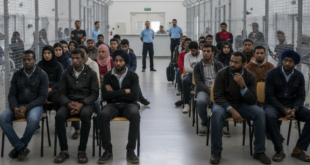The issue of mental health is one of those taboos among Black people. Even the World Bank identified that ‘Mental disorders, such as depression, anxiety, and substance use disorders, affect millions of people worldwide. They impose an enormous global disease burden that leads to premature mortality and affects functioning and quality of life’. It is high time, we in the Black community took this seriously and look after ourselves mentally, argues Yemi Babalola*.
Statistics show a steady growth of mental illnesses of various types in the Black communities around the world. This is a conversation most people shy away from due to the cultural stigmatisation associated with mental issues. But then mental illnesses are a reality amongst us that we all must take a deeper look at and try to help ourselves and those around us with, and not shy away from.
The World Health Organisation (WHO) found in a research they did that, mental illness accounts for 30 percent of the non-fatal disease burden and 10 percent of the overall disease burden worldwide, including death and disability. Likewise, the American Psychiatric Association found that, ‘Racial/ethnic, gender minorities often suffer from poor mental health outcomes due to multiple factors including inaccessibility of high quality mental health care services, cultural stigma surrounding mental health care, discrimination, and overall lack of awareness about mental health’.
However, mental illness is steadily becoming much too apparent for us all to ignore and especially withing the Black communities. Being hospitalised for the illnesses or suicide is mostly the final straw for those suffering from this ailment. Which could have been avoided if only those around them recognised the signs early and helped them deal with these issues earlier. Most of us ignore the signs of mental illness when we hear friends and family complain about things like anxiety, depression, isolation from people, mood disorders etc.
No doubt some of what leads to mental ill-health can be associated with the biochemistry of people’s body, for others it’s genetic, that is, it runs in the family. While, for some others it is due to their personality (low self-esteem, pessimistic etc.) and finally the environmental factors, this plays a key factor in how people’s mental health is; for example, exposure to abuse, poverty and violence affect one’s mental health in the long run.
The highlighted causes of mental ill-health are no strangers in the Black communities. We can self-help by exercising, maintaining healthy diet, having quality sleep and as hard as it can be avoiding alcohol and substances. Also, those around people who are suffering from mental illness have a role to play. If you or someone you know has a mental illness, is struggling emotionally, or has concerns about their mental health, there are ways to help them; do not snap at them or minimise their feelings when they speak out or ostracise them. These are some of the things we do and push such people away and they refuse to seek help.
We must do better as a community by being more attentive, being gentle and help those exhibiting signs of mental ill-health to seek external help (counsellors, psychologists, therapists, psychiatrists). Ultimately, we need to be more loving and caring to one another as this is the way we can be of help to such people all around us.
A mentally healthy Black community is a happy Black community!
Yemi Babalola, a Media and Communication student of Technische Universität Ilmenau, Germany, is an intern at the African Courier Media
 THE AFRICAN COURIER. Reporting Africa and its Diaspora! The African Courier is an international magazine published in Germany to report on Africa and the Diaspora African experience. The first issue of the bimonthly magazine appeared on the newsstands on 15 February 1998. The African Courier is a communication forum for European-African political, economic and cultural exchanges, and a voice for Africa in Europe.
THE AFRICAN COURIER. Reporting Africa and its Diaspora! The African Courier is an international magazine published in Germany to report on Africa and the Diaspora African experience. The first issue of the bimonthly magazine appeared on the newsstands on 15 February 1998. The African Courier is a communication forum for European-African political, economic and cultural exchanges, and a voice for Africa in Europe.

































